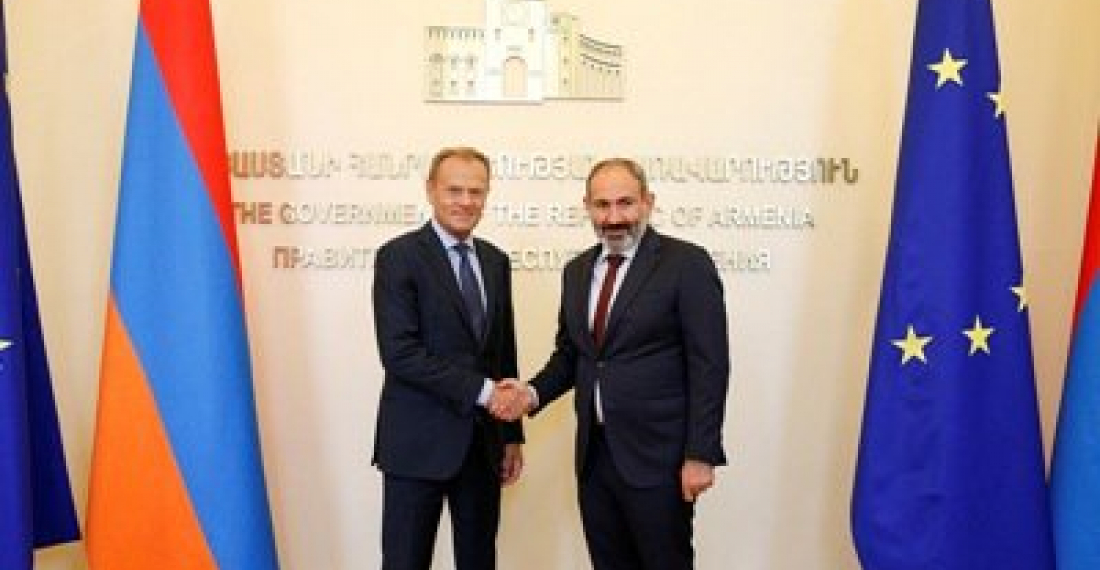The president of the European Council, Donald Tusk, on Wednesday continued his tour of the South Caucasus, visiting the Armenian capital, Yerevan.
In the Armenian capital Yerevan, Tusk held talks with Armenian prime minister, Nikol Pashinyan, and other Armenian officials.
Addressing a press conference after the talks president Tusk said,
This is my first visit to Yerevan since Armenia's peaceful revolution. I’m glad to be here now when positive dynamics in Armenia have created new opportunities for our cooperation. My visit is proof of the importance that the EU attaches to our relations with Armenia and the region.
Our discussion today highlighted the effective implementation of our Partnership Agreement, an ambitious agreement that supports Armenia's modernisation. The European Union will continue providing technical and financial assistance for its implementation.
The Prime Minister and I also agreed on the importance of the rule of law, fight against corruption and respect for human rights. The EU welcomes the focus on creating an independent, efficient and accountable judicial system. A solid judiciary is an essential element of a mature democracy and for economic and social development. Also here the EU will continue to support with expertise and mobilise further resources. We also discussed the establishment of a specialised anti-corruption commission.
In recognition of the government's reform efforts, the EU has almost doubled our support to Armenia in 2019. These funds will help to implement priority projects, including infrastructure and environment.
In this context, I look forward to visiting Lake Sevan later today, where the EU will support water management, as agreed during the recent visit of PM Pashinyan in Brussels. And I will have the opportunity to visit Sevanavank, a monument that testifies to Armenia's millennia-old imprint on Europe’s culture.
Today, we also discussed the unresolved Nagorno-Karabakh conflict. The EU has been encouraged by the dynamics over the past year and the commitment to preparing the people for peace and a focus on humanitarian issues. But we also share the Minsk Group Co-Chairs' concern about recent casualties along the Line of Contact as well as escalatory rhetoric. Both sides should show restraint and take measures to restore an atmosphere conducive to peace and real talks.
The conflict does not have a military solution and needs a political settlement in accordance with international law and principles. The EU continues to fully support the efforts of the Minsk Group Co-Chairs and their focus on a fair and lasting settlement based on the core principles of the Helsinki Final Act. The EU is already supporting peace-building activities and is ready to further support measures to prepare the populations for peace.
Prime Minister, let me conclude by thanking you again for the warm welcome. I am encouraged by the progress under your leadership and I want to assure you that the European Union will continue to work closely with Armenia to the benefit of all Armenians.
Earlier, welcoming the President of the European Council to Armenia, Prime Minister Pashinyan stated that the enhancement of relations with the European Union is one of Armenia’s foreign policy priorities. “Mr. Tusk, I am glad to meet you again. The European Union is a key partner for Armenia. We attach importance to the cooperation with the EU for implementation of Armenia’s reforms agenda, and enforcement of the Comprehensive and Enhanced Partnership Agreement will contribute to the deepening of our partnership. We highly appreciate your personal contribution to the enhancement of Armenia-EU relations and are grateful to you for the effective cooperation,” the Prime Minister noted.
source:commonspace.eu







